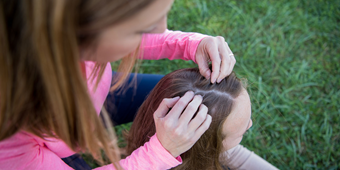Straight Talk About Diarrhea

Find Your Perfect Match
Answer a few questions and we'll provide you with a list of primary care providers that best fit your needs.
You’re in the midst of a nasty stomach virus. And you just cancelled a commitment with a friend, who asked, “What kind of symptoms are you having?” You hesitated, before offering, “I’m not throwing up. But, well….”
By way of elimination, your friend assumes you don’t like uttering the word diarrhea.
Even if the subject leaves you feeling uncomfortable, it’s to your benefit to know what causes this intestinal distress, what you can do about it and most importantly, how to know if it’s serious.
What is Diarrhea?
Diarrhea is loose, watery stools. It’s the second most commonly reported illness in the United States (after colds). Acute diarrhea lasts for one or two days and is normally caused by a gastrointestinal virus or a bacterial infection.
Chronic diarrhea, however, lasts several weeks and can be a symptom of a medical disorder. The loose, watery stools can be accompanied by symptoms like cramping, bloating, stomach pain, nausea and fever.
What Causes Diarrhea?
Common causes of diarrhea include:
- Intestinal virus: This is the most common cause. For kids, rotavirus is the culprit. For adults, it’s norovirus (also called cruise ship diarrhea, for reasons you can guess).
- Bacterial infection: Food poisoning is an example of a bacterial infection that causes diarrhea.
- Medicines: Antibiotics, chemotherapy drugs for cancer and laxatives with magnesium can all cause diarrhea.
- Medical disorders: Diarrhea may be a symptom of disorders such as celiac disease, Crohn’s disease, irritable bowel syndrome (IBS), issues with absorption or lactose intolerance.
- Foreign travel: Many experience “traveler’s diarrhea” because of drinking water or eating food that contains bacteria or parasites.
- Other rare issues: These include damage from radiation or tumors that produce too many hormones.
What Can You Do to Treat It?

It’s extremely important to avoid dehydration when you have diarrhea. You can drink liquids that contain sugar and salt (which helps your intestines absorb fluids). Suck on ice chips and return slowly to eating with broths and bland foods.
If you’ve been prescribed an antibiotic for a bacterial infection, you need to continue taking the antibiotic as instructed. Unless your doctor tells you to, avoid taking medicines that stop diarrhea as these can make infections worse. For chronic diarrhea, the treatment will depend on the underlying cause.
It’s extremely important to avoid dehydration when you have diarrhea.
When Is Diarrhea a Serious Health Concern?
When you or your child have diarrhea, you need to be on the lookout for symptoms of dehydration. These are:
- Urinating less often than normal
- Feeling thirsty
- Dry skin, mouth or nostrils
- Sunken eyes
- Lightheadedness
- Fast heart rate
- Headaches
- Sunken fontanels (on baby, the soft spot on the head)
If you see these signs of dehydration, call your doctor right away. And call for an appointment if you have any of these symptoms:
- Blood or pus in your stool
- A fever over 101 along with diarrhea
- Black stools
- Stomach pain that doesn’t go away after you use the bathroom
- You have diarrhea after traveling to a foreign country
- Diarrhea that lasts more than two days for an infant or child or five days for an adult. For young babies, call the doctor as soon as you realize the baby has diarrhea.
Happily, in most cases, diarrhea soon passes. And you can be on your way – without worrying if you’re close to a bathroom.
Find Your Perfect Match
Answer a few questions and we'll provide you with a list of primary care providers that best fit your needs.
Source: Medline Plus; American College of Gastroenterology




